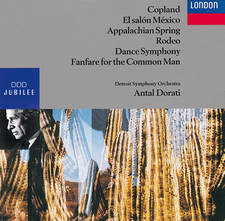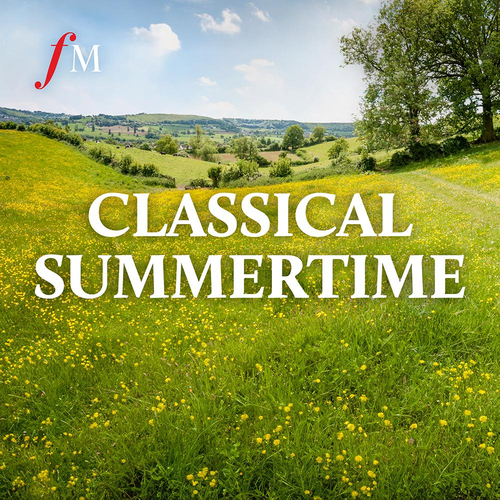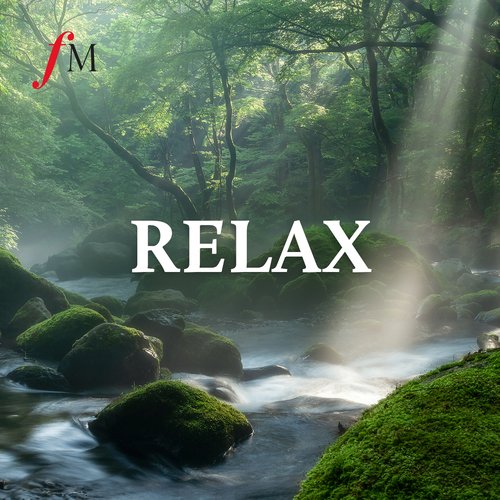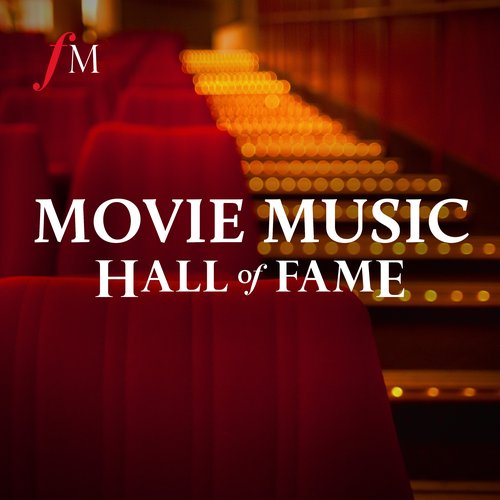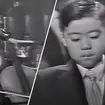How the murder of George Floyd impacted music-making in Minneapolis and across the globe
12 July 2022, 10:45 | Updated: 12 July 2022, 22:43
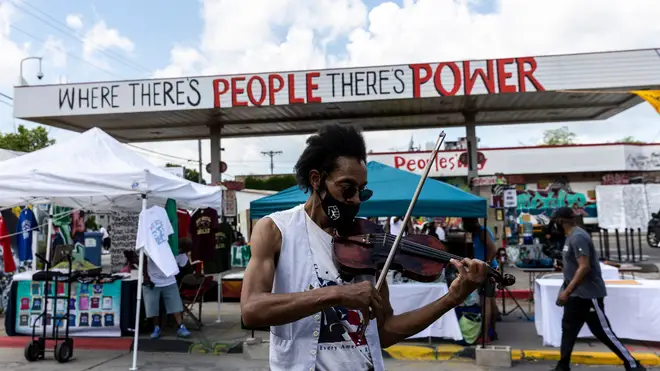
Two years on from the murder of George Floyd, we spoke to three local musicians from the Twin Cities about how the music industry in Minneapolis, Saint Paul, and beyond has changed.
On 25 May 2020, 46-year-old Minneapolis resident George Floyd was murdered by Officer Derek Chauvin while in police custody.
Floyd’s death amplified the Black Lives Matter movement and the impact of his murder was felt around the world, with multiple protests taking place across the globe in his name.
Daria Adams, 62, a violinist in the Saint Paul Chamber Orchestra lives just a few miles away from where Floyd was killed in Minneapolis, an area now commemorated as George Perry Floyd Square.
“After the murder of George Floyd, we immediately started meeting online as an orchestra and planning what we could be doing and what we could be playing,” Adams told Classic FM. “Right away, I would say the conversation led to ‘we need to play music by underrepresented composers’.”
Read more: 9 Black composers who changed the course of classical music history

Randall Goosby | 4 Black Composers You Should Know | Classic FM
‘It’s like we’ve woken up to this injustice’
“Everyone in the orchestra was at home listening and digging and researching – just who are these composers that we’ve overlooked?” Adams told Classic FM. “And it wasn’t just about Black composers, but that was the impetus. It was women. It was also Hispanic, Native American, as well as Black composers that had been completely overlooked.
“For years we’ve been playing dead white guys. And the weird thing is, I don’t think we really noticed for a very, very long time. I think changes started to be made in the classical scene only maybe a little bit before George Floyd. We were starting to talk about it. But it didn’t really strike us as odd – even thinking about just the inclusion of women – and now all of a sudden it’s like, what have we been doing? It’s like we’ve woken up to this injustice. It really was quite dramatic.”
The Saint Paul Chamber Orchestra however, was making strides in inclusion long before the murder of George Floyd, according to Dr Roque Diaz, the Senior Director of Diversity, Equity, and Inclusion (DEI) at the MacPhail Center for Music.
“The orchestra have definitely been doing DEI (work much longer than a lot of organisations,” Dr Diaz told Classic FM. “I think even as early as at least 10 to 15 years ago they acknowledged the writing on the wall and said, ‘we need to be more inclusive.’
“One of the things they did, which I really loved, was they lowered and also limited the ticket price for those who can’t pay full price. As well as bringing people to their concerts, they also brought their concerts to the communities. They’ve played away from the concert hall, and in restaurants and churches,” he added. “The Minnesota Orchestra, are starting to do the same thing now.”
Read more: The UK’s best cheap orchestra and opera tickets for young audiences
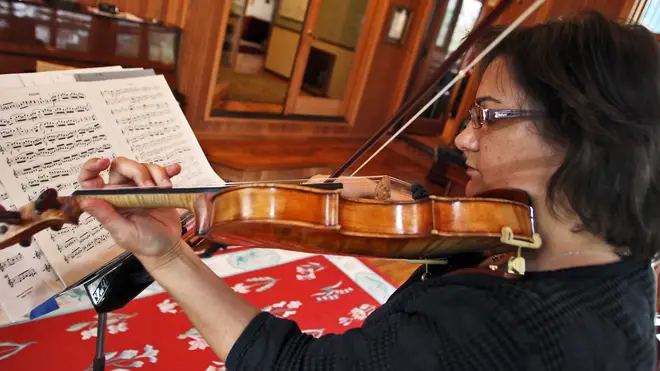
‘We’d turn on the air con to drown out the sound of helicopters’
The Twin Cities of Minneapolis–Saint Paul saw riots as well as protests, which began on 26 May 2020, the day after the murder of Floyd. Minneapolis in particular sustained extraordinary damage from rioting and looting, and Tim Walz, the Governor of Minnesota, imposed a state curfew for the cities of Minneapolis and Saint Paul on 29 and 30 May.
“I was living in the city during the riots of Summer 2020,” Dr Diaz told Classic FM. “I was still living in graduate housing at the University of Minnesota, where I had completed my PhD, with my son. His mother lives off University Avenue in St. Paul, where there was a lot of protesting happening there, so she came and stayed with us for that week.
“We had never experienced anything like this before. I remember the sound of all the phones going off announcing the curfew, and covering my son’s ears because of how loud it was. We’d turn on the air conditioning, or put on a white noise machine, to try and drown out the sound of helicopters which flew overhead for weeks and weeks. It was just unreal.”
Read more: ‘We cannot remain silent’ – musicians protest against George Floyd’s death and police brutality
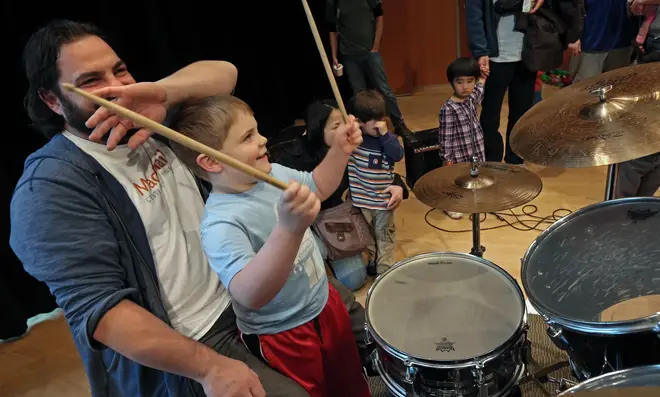
At the time, Dr Diaz was the Director of School Partnerships for the MacPhail Music Center, a non-profit community music school providing individual music lessons and group classes in over 35 instruments and voice.
“MacPhail serves everyone from toddlers to 106-year-olds,” Dr Diaz explained to Classic FM. “We are the largest community school in the country, serving 15,000 students. When I first started here in 2018 I thought, ‘This is great. So, what are we doing to reach more of the populations instead of just the white dominant population?’”
Dr Diaz comes from a self-described ‘unique’ background, “I’m a professional musician – a trumpeter – and an educator. I was born in Puerto Rico and grew up in North Carolina; growing up in the South was interesting for me as a Hispanic person.
“Because of this, from a young age, I started developing this kind of equity mindset but I didn't yet know how to contextualise it. A big part of my learning came due to my performance background. One thing I noticed, if I wasn’t doing musical theatre, and I was performing with orchestras, was a lack of racial and ethnic diversity on stage and in the audience too. And I thought, why is that?”
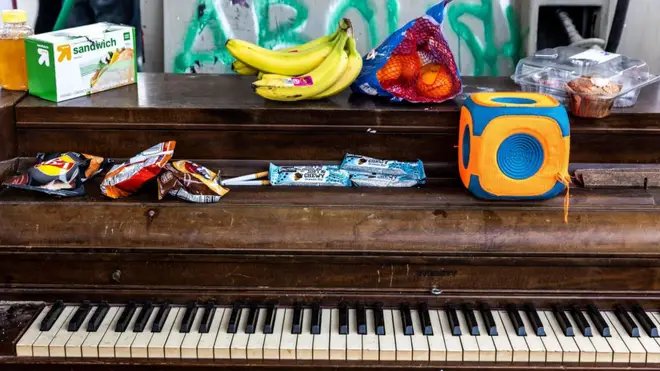
‘There’s a lot of emotional labour in a chief diversity officer role’
“After the murder of George Floyd, lots of Arts organisations and orchestras started to have conversations on the topic of inclusion,” Dr Diaz told Classic FM. “For some, this was very surface level, because it’s a lot to unpack. Organisations were saying ‘we’re going to be equitable’, or ‘we’re going to be anti racist’, and that’s great. If you’re acknowledging you’ve got to be an anti racist organisation, then you’re acknowledging you have racist tendencies. But many of the companies at the time lacked somebody in a position that was guiding the work as a practitioner versed on the subject of DEI.
“I was overwhelmed at the time seeing so many statements about the murder of George Floyd and Black Lives Matter, but one that hit me especially hard was Ben and Jerry’s ice cream; not only was it a beautiful statement but they were backed up with all these actions. This encouraged me to go to my senior leadership team and say, ‘we need a Director of Diversity, Equity, and Inclusion, preferably somebody that is skilled in this work, and also from historically excluded and marginalised background’.”
The senior leadership gave Dr Diaz a part time learning and engagement leader type role while the director job was fully developed; they didn’t want the position to be tokenised.
“You were seeing so many organisations suddenly create these chief diversity officer roles after the murder of George Floyd, and these positions burned out so fast as there’s a lot of emotional labour. It took about six months of me being in the part time role to tell my organisation, this isn’t a part time position.
“When you do equity, if you truly want to be an activist, and a practitioner, and a supporter, and a thought leader, it is full time work. Especially for those who have been historically oppressed; we can’t just turn it off, we learn how to simulate and adapt and code shift, but this is our everyday life too.”
Dr Diaz took on the full-time role of Senior Director of Diversity, Equity and Inclusion of MacPhail in January 2021.
To achieve justice, we don’t need just thoughts and prayers — we need education and action. The below thread offers some ways to learn about our country’s history, its impact on the present, and the underlying conditions that led to the murder of George Floyd. pic.twitter.com/GYUcvb4w0N
— Ben & Jerry's (@benandjerrys) June 5, 2020
‘There’s so much crossover now – even a hip-hop violin concerto’
In September 2021, the Metropolitan Opera in New York opened their 2021-2022 season with Fire Shut Up In My Bones by Terence Blanchard; this was the first opera by a Black composer ever staged at the historic opera house.
“I know in my chamber orchestra, there’s a real strong effort to look into our audience and see a mix of people,” Adams told Classic FM, “and we have had a couple of black guest artists that have helped to do that, which is really exciting. One of our artistic partners was this South African cellist, Abel Selaocoe and he came and just blew the roof off. It was one of the most exciting concerts I’ve ever done.
“The audience was up on their feet dancing. At one point we had all these Black children come walking up the aisle with their parents, encouraged by Selaocoe, and they got up on the stage and started dancing. It was fantastic, and honestly, this wouldn't have happened five years, ten years ago at a classical concert.
“At the end of the day, music is music – what even is classical music?” Adams questioned. “I've been a classical musician my whole life, and I don’t know. There's so much more crossover happening now. Violinists aren’t only expected to play classical music, there are jazz, blues, fiddling, and hip-hop violinists too; there’s even a hip-hop violin concerto.”
Dress Rehearsal with Abel SelaocoeCouldn't help but dance right along with Abel Selaocoe during rehearsal 😅 We guarantee you'll want to be grooving in your seat too! We're so glad that everyone everywhere will be able to experience all the magic in Where's My Refuge? with Abel Selaocoe, streaming #LIVE and for #Free Saturday at 8pm CDT 🔗 thespco.org/live
Posted by The Saint Paul Chamber Orchestra on Friday, March 18, 2022
‘Music can be comforting, but also powerful’
Grammy Award-winning musician, and Twin Cities resident, GSHARP, has played a variety of genres. The backing vocalist and rhythm guitarist has toured with a number of legendary artists including Prince, Jimmie Vaughan, and Eric Clapton.
“Music can be comforting, but also powerful,” GSHARP told Classic FM. “So, from a music standpoint, the murder of George Floyd and the rise of Black Lives Matter was the perfect opportunity to write some soul power, and power to the people songs, just like they did in the 70s during the Vietnam War.”
Originally from Memphis, Tennessee, GSHARP has been in living in the Twin Cities since the 80s. Over the last year and a half alone, he has had ten of his songs featured on commercial television, including a song written in 2021 called ‘Brighter Days’, which featured in an advert for the job finding company, Indeed.
“During the Great Depression in 1929, everything went downhill, in terms of business,” the award-winning musician explains. “The only industry that kept going strong – in fact the two industries that kept going strong through the Great Depression and every recession since – was insurance, and music. Because in the best of times, and the worst of times, we want to be entertained.
“And making music has always been about using your emotion to talk about something that’s bigger than that. With George Floyd, the worldwide reaction came because there was a video. People didn’t like how it made them feel. I don’t like how it felt to see that man being killed on the street.”
Posted by Bill Mitchell on Saturday, June 9, 2018
Adams agrees, “Because that brave young woman kept her camera on, we saw the murder of Floyd. If we had just heard about it, yes it would’ve been horrible but it wouldn’t have had the same impact. I mean, watching that. To see a man, just because just because he was Black, be murdered. It was just so shocking.
“Of course, Black people have known this all along, and although most people knew about it, they didn’t really feel it, until they saw it. And that’s what made the difference.
“George Floyd changed a lot. A lot of things. He certainly didn’t die in vain. The world stood up and listened. Finally. It really had a lasting impact.”
